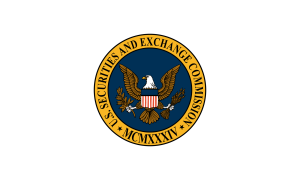Regulation A – Regulation A+
Regulation A – Regulation A+
This blog offers a brief summary of Regulation A and Regulation A+ offerings. Obviously, this is a very complex matter with a number of issues that would have to be addressed by the issuer with a FINRA-registered broker dealer coupled with a well-experienced securities attorney.
Historically, Regulation A or Reg A offerings have been utilized. In fact, from 2012 to 2014, only 26 Regulation A offerings were qualified by the SEC. Reg A offerings have not been popular because of (i) the offering costs, (ii) the burden of an SEC review, and (iii) the necessity of complying with the state blue sky laws in each state where an offering is conducted. The other issue with Regulation A offerings is that they were restricted to offerings of less than US$5 million.
Regulation A+ or Reg A+ was adopted to implement the rule-making mandate of Title IV of the Jumpstart Our Business Startups Act (commonly referred to as the JOBS Act), which was signed into law in April 2012. One of the major changes of Regulation A+ is that it now allows an issuer to offer and sell up to US$50 million of securities over a 12 month period in a public offering, without complying with the registration requirements of the Securities Act.
Regulation A+ provides for two tiers of offerings; Tier 1 offerings of up to US$20 million in any 12 month period and Tier 2 offerings for up to US$50 million in any 12 month period. Each Tier has its own unique offering requirements which should be discussed with a registered broker dealer, for example, Tier 2 offerings of Reg A+ introduces an investment limitation for non-accredited investors. This limitation does not allow these investors to purchase more than ten percent of the greater of the investor’s annual income or net worth.
Reg A+ limits the securities offered to equity securities, including warrants, debt securities convertible into or exchangeable into equity interests, including guarantees of such securities. There are also other limitations, for example, an issuer cannot be an existing SEC reporting company, a “blank check company,” etc.
Another unique feature of Regulation A+ offerings is that issuers have liability with regard to offers or sales made by means of an offering statement or oral communications that may include a material misleading statement or omission. This liability is not present in offerings made under Rule 506 of Regulation D. Disappointed investors in a Rule 506 offering cannot sue, under the federal securities laws, for negligent misrepresentation. In these cases, the investor must prove actual intent to defraud, or reckless indifference to the truth of the representations made in the offering.
Regulation A+ securities are subject to FINRA Rule 5110, which prohibits FINRA members and their associated persons from participating in any public offering of securities unless they comply with the filing and review requirements of the Rule.
Raising capital is an important tool for entrepreneurs to maintain the necessary funds to grow and expand their businesses. That being said, as a result of a number of frauds, the US Government, the SEC, and FINRA have all developed a number of laws and regulations for the raising of capital. No entrepreneur should ever attempt to raise capital without using a FINRA-registered broker dealer. Versailles Group, Ltd.’s affiliate, VGL Global LLC is a registered broker dealer and has the expertise to assist companies in raising capital.








